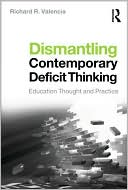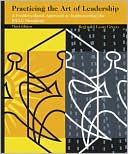Dismantling Contemporary Deficit Thinking: Educational Thought and Practice
Search in google:
Deficit thinking is a pseudoscience founded on racial and class bias. It "blames the victim" for school failure instead of examining how schools are structured to prevent poor students and students of color from learning. Dismantling Contemporary Deficit Thinking provides comprehensive critiques and anti-deficit thinking alternatives to this oppressive theory by framing the linkages between prevailing theoretical perspectives and contemporary practices within the complex historical development of deficit thinking.Dismantling Contemporary Deficit Thinking examines the ongoing social construction of deficit thinking in three aspects of current discourse—the genetic pathology model, the culture of poverty model, and the "at-risk" model in which poor students, students of color, and their families are pathologized and marginalized. Richard R. Valencia challenges these three contemporary components of the deficit thinking theory by providing incisive critiques and discussing competing explanations for the pervasive school failure of many students in the nation’s public schools. Valencia also discusses a number of proactive, anti-deficit thinking suggestions from the fields of teacher education, educational leadership, and educational ethnography that are intended to provide a more equitable and democratic schooling for all students.
List of Figures and Tables viiiSeries Editor's Foreword ixPreface xiAcknowledgments xix1 The Construct of Deficit Thinking 12 Neohereditarianism: Pseudoscientific Explanations for Racial Differences in Intelligence 193 Ruby Payne's Mindsets of Poverty, Middle Class, and Wealth: A Resurrection of the Culture of Poverty Concept 684 At-Risk Students or At-Risk Schools? 1015 Deconstructing Deficit Thinking: Practical Solutions for Teacher Educators, Educational Leaders, and Educational Ethnographers 1266 Conclusion: (A) The Bankruptcy of the Standards-Based School Reform Movement; (B) Toward the Construction of Meaningful School Reform: Democratic Education 148Notes 159References 183Index 215








